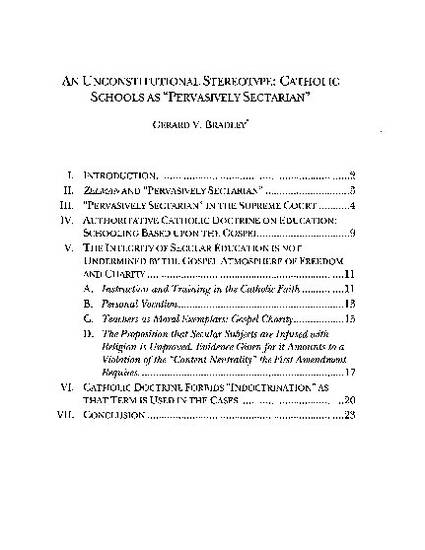
The Supreme Court first held public assistance to religious schools unconstitutional in 1971 in Lemon v. Kurtzman. From then until now the concept of “pervasively sectarian” has played a central role in “parochaid” jurisprudence; every holding against “direct” aid has rested upon it as a necessary premise. “Pervasively sectarian” refers to the assertedly religious (“sectarian”) character of the entire curriculum at parochial schools. Religion, it is said, so permeates the whole educational program that “direct aid” to any aspect of that program inescapably aids religion itself. And that, it is said, violates the Establishment Clause. Because aid statutes typically aim to foster only secular education-maps, field trips, secular books, guidance services branding schools “pervasively sectarian” makes it possible for Justices so inclined to find an Establishment Clause violation. A bare majority of the Supreme Court sidestepped “pervasively sectarian” while upholding the Cleveland voucher program in Zelman v. Simmons-Harris. Those five Justices decided that public money went to parochial schools due to parents' genuine “private choice.” No “direct aid” to religious schools occurred at all.
Available at: http://works.bepress.com/gerry_bradley/15/
